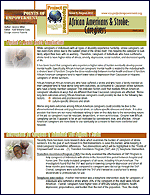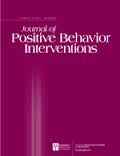Information, resources and research about work and disability issues
VCU Autism Center for Excellence Webcast
 Practical Management Strategies: What to do After the Meltdown - Part 2
Practical Management Strategies: What to do After the Meltdown - Part 2
Date: 2/12/2013 |
3:30 - 4:30 pm ET
By: Kathy Morris
Many students with ASD exhibit interfering behaviors to effectively and efficiently navigate their environment. Oftentimes, the term "meltdown" is used to describe a temporary event that appears to come "out of nowhere". The meltdown appears as a moment where the person has lost control of their ability to cope or regulate their behavior. Difficulty regulating during the peak of a meltdown is usually due to a series of unfortunate events that happened throughout the day, and the fifth unfortunate event was the 'straw that broke the camel's back.' This presentation is the second part to the two-part series on management strategies for after the meltdown.
Register for this webcast. Cost: $50. * Free to Virginia participants.
VCU-ACE is funded by VA DOE (Grant # 881-61172 H027A100107). For additional information, contact autismcenter@vcu.edu or (855) 711-6987.
Project Empowerment Webcast
 Grant Writing 101: It's Not Rocket Surgery
Grant Writing 101: It's Not Rocket Surgery
Date: 1/16/2013, 2:00pm ET
Presenter: Jessica Venable
Ms. Venable will discuss grant writing by delving into her own experiences and successes of the process. She will discuss the basic components that every researcher needs to write a competitive grant.
Register for this Free Webcast
Project Empowerment - Points of Empowerment
 African Americans & Stroke: Caregivers - Physical & Mental Health Complications
African Americans & Stroke: Caregivers - Physical & Mental Health Complications
While caregivers of individuals with all types of disability experience hardship, stroke caregivers can feel even more stress due to the sudden onset of the stroke itself. This requires the caregiver to suddenly adjust their lives with no warning. Therefore, caregivers of individuals who have suffered a stroke tend to have higher rates of stress, anxiety, depression, social isolation, and decreased quality of life. It has been found that caregivers who experience higher rates of burden eventually develop poorer mental health.
Find out More about Stroke and Caregivers
2013 National APSE Conference
 Save the date...June 24-27,
Save the date...June 24-27,
24th Annual APSE National Conference
Race to Success - Employment Comes in First!
Marriott, Indianapolis, IN
Early Bird Rates end Jan 15.
Register online
The APSE conference focuses exclusively on employment of people with disabilities in the community. For the past 23 years, the National APSE Conference has brought together business and community leaders from across the country to network and focus on state of the art strategies to ensure equitable employment for citizens with disabilities.
This year's conference will feature a wide array of high quality breakout sessions on the latest innovations in employment of people with disabilities. Featured strands will include State-of-the-Art Practices in Integrated Employment; Transition from School to Adult Life; Public Policy and Funding; Leadership and Personal Development; Consumer, Family and Self-Advocacy.
Research Study of the Month
 Project SEARCH for Youth With Autism Spectrum Disorders: Increasing Competitive Employment On Transition from High School
Project SEARCH for Youth With Autism Spectrum Disorders: Increasing Competitive Employment On Transition from High School
by Paul Wehman, Carol Schall, Jennifer McDonough, Alissa Molinelli, Erin Riehle, Whitney Ham and Weston Thiss
Abstract - Supporting youth with autism spectrum disorder (ASD) in the transition to adulthood is challenging. This article provides a description of how Project SEARCH, a model transition program for youth with disabilities, was used to help youth with ASD gain competitive employment. This article includes two case studies and a thorough description of the additional supports provided to increase successful employment on graduation from high school. Key Project SEARCH program components include setting a goal for employment, providing successive intensive internships in a community business, and assuring collaboration between school and adult services staff. Supports specific to students with ASD include providing intensive instruction in social, communication, and job skills; visual supports; and work routine and structure. These supports are described in the provided case studies.
The online version of this article can be found at, Sage Journals
Register Now for Upcoming Online Courses
View All Upcoming Courses | CEUS & CRCs are available
![]() Job Development - Job development is the "process of locating and creating work opportunities for individuals with disabilities". February 4, 2013 | Details & Register Online
Job Development - Job development is the "process of locating and creating work opportunities for individuals with disabilities". February 4, 2013 | Details & Register Online
![]() Customized Employment - Customized employment is a process for individualizing the employment relationship between a job seeker and an employer in ways that meet the needs of both. March 4, 2013 | Details & Register Online
Customized Employment - Customized employment is a process for individualizing the employment relationship between a job seeker and an employer in ways that meet the needs of both. March 4, 2013 | Details & Register Online
![]() Into Adulthood: Transition to Work for Individuals with Autism - More than ever, individuals with autism spectrum disorders are participating in the mainstream of school, work, and the community. March 18, 2013 | Details & Register Online
Into Adulthood: Transition to Work for Individuals with Autism - More than ever, individuals with autism spectrum disorders are participating in the mainstream of school, work, and the community. March 18, 2013 | Details & Register Online
![]() Supported Employment for Individuals with Traumatic Brain Injury - Early demonstration projects back in the late 1980's and 90's paved the way for using a supported employment approach for someone who has sustained traumatic brain injury (TBI). April 1, 2013 | Details & Register Online
Supported Employment for Individuals with Traumatic Brain Injury - Early demonstration projects back in the late 1980's and 90's paved the way for using a supported employment approach for someone who has sustained traumatic brain injury (TBI). April 1, 2013 | Details & Register Online
![]() Supported Employment Web-Based Certificate Series
Supported Employment Web-Based Certificate Series
(ACRE Certified) - This course provides an extensive overview of supported employment and how to facilitate competitive jobs for individuals with significant disabilities. April 1, 2013 | Details & Register Online
![]() Supported Competitive Employment for Individuals with Mental Illness ( ACRE Certified) - This course provides an extensive overview of supported competitive employment for individuals with mental illness. April 1, 2013 | Details & Register Online
Supported Competitive Employment for Individuals with Mental Illness ( ACRE Certified) - This course provides an extensive overview of supported competitive employment for individuals with mental illness. April 1, 2013 | Details & Register Online
![]() Customized Supported Self-Employment - The success rate of small business is surprisingly high, despite widely accepted folklore to the contrary. The U.S. Small Business Administration reports that over 79% of small businesses are still operating after the initial eight years. May 6, 2013 | Details & Register Online
Customized Supported Self-Employment - The success rate of small business is surprisingly high, despite widely accepted folklore to the contrary. The U.S. Small Business Administration reports that over 79% of small businesses are still operating after the initial eight years. May 6, 2013 | Details & Register Online
Judy Owen - Diary of a Start-up (Forbes)
The High Unemployment Rate Of People With Disabilities
In my last post I mentioned that I started my company, Opportunity Works, Inc. because I could not find a staffing company with a focus on recruiting people with disabilities. This seemed like an obvious part of the solution to the unemployment of people with disabilities. I knew that Manpower, the largest staffing company in the world held Federal Contracts to focus on this area, but still no company I could find had this component as part of their normal business operation.
Today, I want to write a follow-up to that post, thanks to insight shared last week by Felicia Nurmsen, National Project Ability Leader & Government Solutions Executive for Manpower. Felicia sent me a study published by Virginia Commonwealth University in 2008 from efforts focused on private/public partnerships in employment for people with disabilities starting in 2002. I would like to say that the study, "Public/private partnerships and employment of people with disabilities: Preliminary evidence from a pilot project" was fascinating and insightful. It was those things, but even more so it was relieving.
 Worksupport.com
Worksupport.com